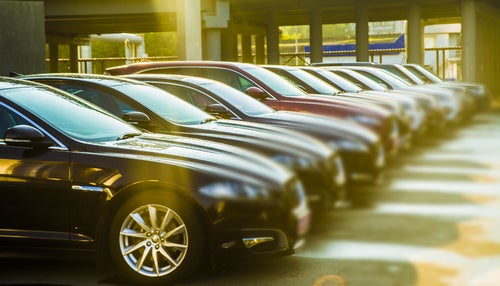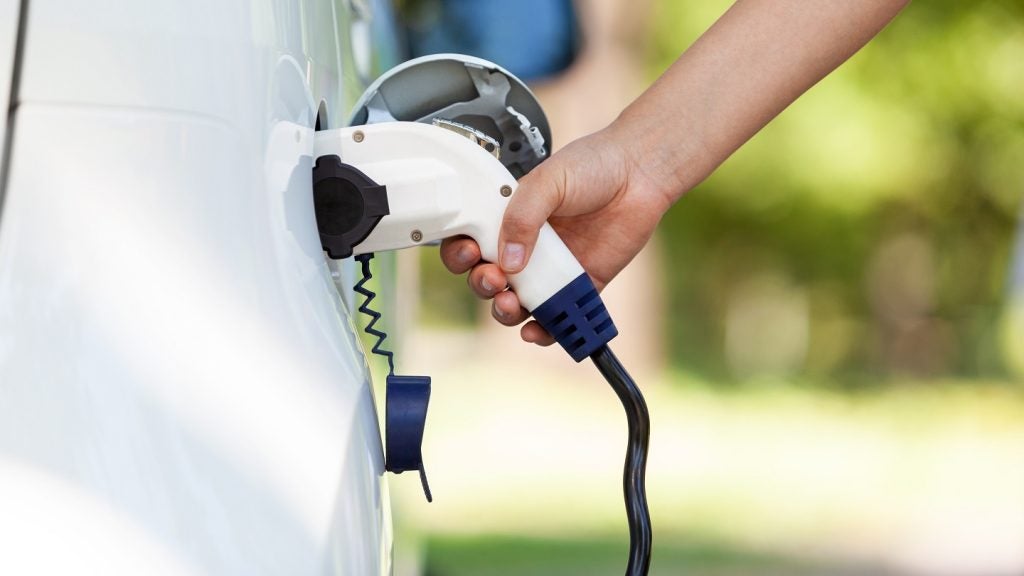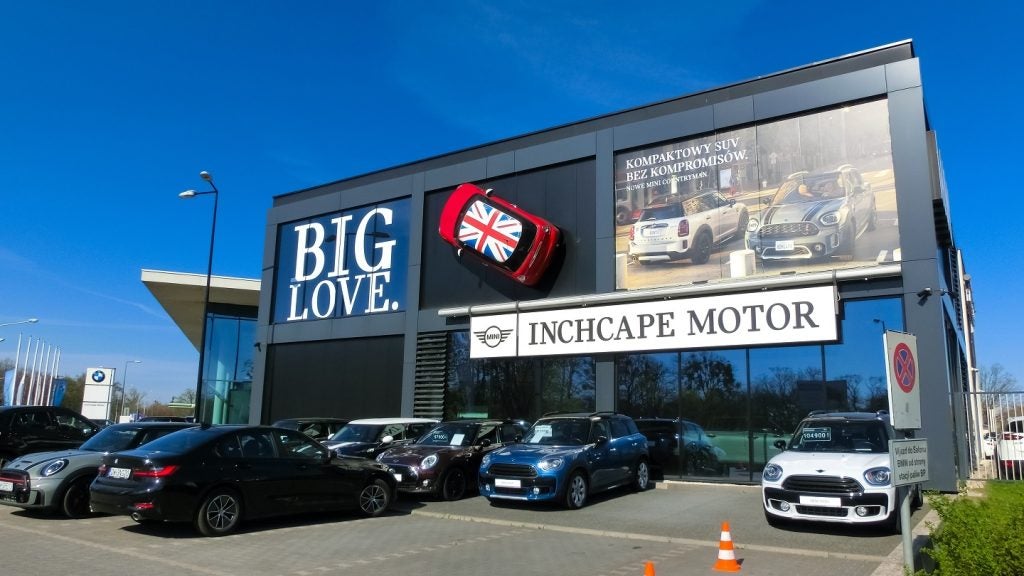
The UK new car market saw registrations fall by 29.4% in 2020, representing the worst year for almost two decades.
According to data from the Society of Motor Manufacturers and Traders (SMMT), UK annual new car registrations fell to 1.63m across the year, after pandemic induced showroom closures severely hampered demand.
After a tough year, a further 10.9% decrease in registrations in December compounded the existing damage from Covid-19, Brexit uncertainty and acceleration of the ICE-vehicle ban. The fall in sales represented £20.4bn in lost turnover.
Mike Hawes, chief executive of SMMT, described 2020 as “a lost year for Automotive” attributable to “pandemic-enforced shutdown for much of the year and uncertainty over future trading conditions taking their toll”.
Two segments managed to buck the trend of an industry-wide decline in demand: specialist sports and battery electric vehicles (BEVs) or hybrids.
Specialist sports grew by 7% whilst demand for BEVs increased by 185.9% to 108,205 units. Plug-in hybrids also rose by 91.2% to 66,877 units. These categories now account for more than one in ten registrations.
How well do you really know your competitors?
Access the most comprehensive Company Profiles on the market, powered by GlobalData. Save hours of research. Gain competitive edge.

Thank you!
Your download email will arrive shortly
Not ready to buy yet? Download a free sample
We are confident about the unique quality of our Company Profiles. However, we want you to make the most beneficial decision for your business, so we offer a free sample that you can download by submitting the below form
By GlobalDataHowever, petrol and mild hybrid petrol (MHEV) cars still made up 62.7% of registrations, while diesel and MHEV diesels comprised 19.6% of the market.
What’s in store?
The latest announcement of lockdown restrictions across England serves as another blow to the industry, in what Hawes hoped to be a “year of recovery”. Whilst industry actors have worked to enhance their digital offerings, tools such as click and collect fail to offset the impact of showroom closures.
Despite a difficult start, Hawes looked favourably on the possibilities for the automotive industry in 2021. As the UK vaccination programme gains momentum, and our new relationship with the EU attains greater clarity, Hawes believes there is strong cause to be hopeful.
He commented: “With manufacturers bringing record numbers of electrified vehicles to market over the coming months, we will work with government to encourage drivers to make the switch, while promoting investment in our globally-renowned manufacturing base – recharging the market, industry and economy.”
Looking forward, 68% of registrations for BEVs and PHEVs were for company cars, indicating further growth potential for private buyers.
According to SMMT data, more than 100 plug-in car models are now available to UK buyers. Manufacturers are on track to introduce more than 35 to market in 2021, outnumbering new petrol or diesel models planned for the year.
However, such growth hinges on greater investment in charging infrastructure, particularly on-street charging. The SMMT is continuing to work with the government in delivering a successful, rapid transition to 100% electric.
Industry reaction
Seán Kemple, Managing Director of Close Brothers Motor Finance, said: “Arriving in 2021, the smoke has not yet cleared and there are further hurdles in the road ahead. The re-tightening of restrictions and continuing production delays have slowed sales in December.
“While Christmas Eve gave us a glimmer of hope in the form of a trade deal with the EU, the new year now brings fresh challenges – the national lockdowns will put pressure on showrooms across the country, and we must wait with baited breath to see the finer detail of economic support for consumers and businesses alike.
“As the Covid-19 vaccine is rolled out more rapidly this year, business outlook will improve such that the motor industry can get back on its feet. But it’s absolutely crucial that the government provides more support to allow this to happen. Further clarity over Brexit, more incentives for drivers to buy electric, and more support to help the industry recover from Covid-19 will all help turn the dial toward a more positive year.”
Sue Robinson, chief executive of the NFDA, said: “It is encouraging that despite the issues affecting the automotive industry and the economy, the EV market continued to grow, showing an increase in consumer appetite and rewarding the efforts dealers are making to meet the demand.
“Although physical showrooms must remain closed over the coming weeks, franchised dealers have demonstrated their ability to adapt, providing ‘click & collect’ services to customers in a safe and compliant manner. This cannot fully replace the traditional buying experience but will offset some of the issues facing businesses over the coming months.”
Michael Woodward, UK automotive lead at Deloitte, said: “The stage is set for further EV growth with the government and manufacturers showing significant commitment to EVs. For example, bringing forward the ban on new petrol and diesel sales to 2030 brings the UK in line with some European markets, such as Ireland and The Netherlands, and is more ambitious than many other major European markets; in some cases by a decade.
“This show of commitment, coupled with financial and tax incentives and a growing focus on the green agenda, will make EVs more desirable than ever in 2021 and the sector will have diesel’s 16% share of the market firmly within reach.
“Speed of growth over the next year will depend on consumer confidence in the UK’s’ charging infrastructure. However, we need only look at Norway, which recently reached a landmark EV market share of 54%, to see what is possible with all pieces of the jigsaw in place.”
Karen Hilton, chief commercial officer at heycar, said: “In the grip of its biggest crisis in generations, dealers have responded impressively – finding new and innovative ways to engage with customers by upping their game in the digital arena.
“Getting stock online, offering video viewings and free delivery as well as enabling more people to complete more of their buying journey from home all helped compensate for significant interruption to business from March onwards when the first nationwide lockdown was imposed.
“With these difficulties likely to last well into the new year, the used car market faces a golden opportunity. For many car buyers in the first few months of the year, a used car may be their only option.”
James Fairclough, chief executive of AA Cars, said: “The run up to Christmas is traditionally a hard month in which to lure people to the forecourts, and the tough lockdown restrictions imposed across the UK at the end of 2020 ensured this December was no exception.
“How dealers experience 2021 once forecourts reopen will be determined by how confident people feel about their finances and the wider economy, and their willingness to spend on big ticket items such as cars.”
Alex Buttle, director of Motorway.co.uk, said: “Healthy electric car registrations are once again a beacon of hope. And the green car revolution gathered pace in 2020 as electric and hybrid vehicle registrations surpassed diesel sales for the first year ever.
“Also, savvy dealers will be able to take the latest lockdown firmly in their stride, with many having moved their operations to focus on an online experience by offering a contact-free, click and collect buying experience for customers.”







